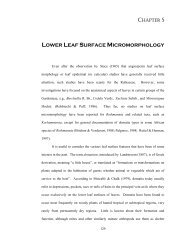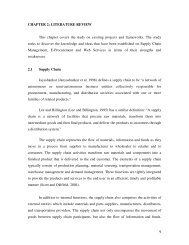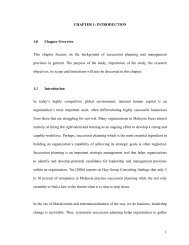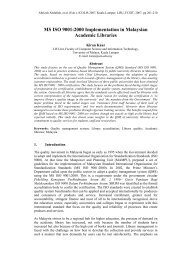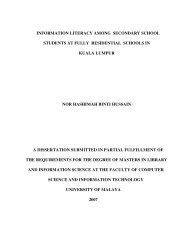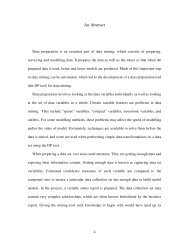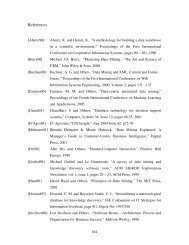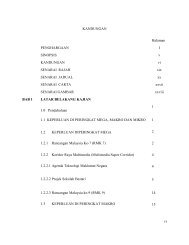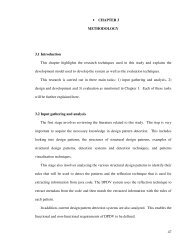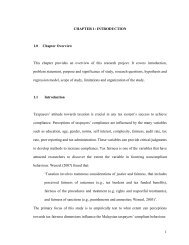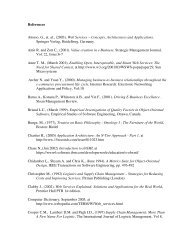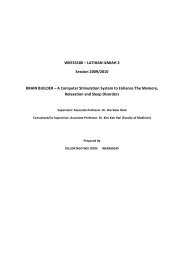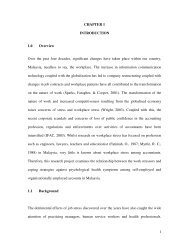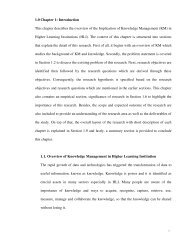Chapter 3 Research Methodology - DSpace@UM
Chapter 3 Research Methodology - DSpace@UM
Chapter 3 Research Methodology - DSpace@UM
- No tags were found...
You also want an ePaper? Increase the reach of your titles
YUMPU automatically turns print PDFs into web optimized ePapers that Google loves.
validation. The real classroom situation is observed especially on students’ behaviors andattitudes towards learning Mathematics. Observations were documented and analyzed.Interviews were then conducted with the Mathematics teachers teaching the classesto have an in-depth understanding on students’ learning behaviors and learning preferences,and to further validate the conclusions drawn from the questionnaire analysis andobservations made. In doing the analysis, teaching pedagogies are also discussed.At the end of the research, feedback forms are distributed to users for EMMLSsystem evaluation purposes. This is to get users’ opinions and responses regarding thewhole learning process using EMMLS and to measure users’ satisfaction level.3.4 Software Development <strong>Methodology</strong>Software development methodology is a descriptive or prescriptive characterizationof how software is or should be developed (Ragunath et al., 2010). A descriptive modeldescribes the history of how a particular software system was developed. Descriptivemodels may be used as the basis for understanding and improving software developmentprocesses or for building empirically grounded prescriptive models (Larman and Basili,2003). Comparative analysis of system development methodologies was made and a briefdescription of each methodology is explained in Table 3.1.29



